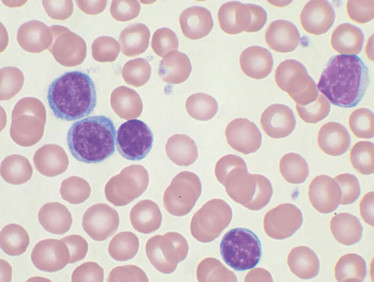CAR-T Tragedy
More deaths in Juno’s cancer immunotherapy trial raise questions over CAR-T safety, as well as FDA transparency

In July this year, Juno Therapeutics halted its cancer immunotherapy trial for after three leukemia patients – all under the age of 25 – died of a cerebral edema (swelling in the brain caused by excess fluid). The FDA cleared Juno to resume the trial only three days later, but tragedy struck again in November – with two more patients dying of cerebral edema.
The FDA’s rapid decision to give the green light to Juno’s phase II “ROCKET” trial of its chimeric antigen receptor T cell (CAR-T) treatment – JCAR015 – after the initial deaths, was seen as a vote of confidence in cancer immunotherapies. The FDA did not explain its motives, but a number of people within the industry have speculated that the lack of of other treatment options for the trial participants may have weighed on the decision.
Juno believed the three deaths were caused by a mid-trial modification to the protocol. After the trial was underway, Juno added a sensitizing agent, fludarabine, on the basis of promising results from the company’s other immunotherapy studies. The protocol originally only included cyclophosphamide as a sensitizing agent, and it was thought that the combination of fludarabine and JCAR015 caused the deaths.
However, in light of the recent deaths it seems clear that removing fludarabine from the protocol did not solve the problem, calling into question the safety of CAR-Ts more broadly (1). For now, Juno has placed the trial on a voluntary hold: “The Company is assessing data from the cases and the trial and is evaluating its options regarding the JCAR015 program. Juno’s trials and plans for its other CD19-directed CAR-T cell product candidates, including JCAR017, are not affected,” (2).
The tragic events have also raised the question of clinical trials transparency and the ethics of companies being solely in charge of commenting on clinical holds or their resolution, as the FDA does not disclose their existence. “Unfortunately, because the FDA does not make its decision making process public, no one has insight into whether these issues were addressed and no one knows if the agency agreed with Juno’s explanation,” wrote Spencer Phillips Hay and Aaron Kesselheim in the BMJ (3).
The FDA’s rapid decision was quite unusual given that holds are normally in place for months (4).
“Increased transparency related to INDs, clinical holds, and the decision making process in these and other cases could promote protection of patients to ensure a supply of volunteers for future trials, improve the experimental process for new therapies, and enhance appreciation for FDA’s vital oversight role,” said Hay and Kasselheim.
- Endpoints news, “Two more patients die as Juno’s lead CAR-T turns lethal again; trial halted”, (2016). Available at: bit.ly/2gi1vGz. Last accessed 7 December, 2016.
- Juno Therapeutics, “Juno Therapeutics Places JCAR015 Phase II ROCKET Trial on Clinical Hold”, (2016). Available at:
- bit.ly/2fRaIZ6. Last accessed 7 December, 2016.
- SP Hay and AS Kesselheim, “The FDA, Juno Therapeutics, and the ethical imperative of transparency”, 354, i4435 (2016).
- STAT, “Two more cancer patients just died in a clinical trial. Should the FDA be blamed?” (2016). Available at: bit.ly/2h5uMrQ. Last accessed 7 December, 2016.

Over the course of my Biomedical Sciences degree it dawned on me that my goal of becoming a scientist didn’t quite mesh with my lack of affinity for lab work. Thinking on my decision to pursue biology rather than English at age 15 – despite an aptitude for the latter – I realized that science writing was a way to combine what I loved with what I was good at.
From there I set out to gather as much freelancing experience as I could, spending 2 years developing scientific content for International Innovation, before completing an MSc in Science Communication. After gaining invaluable experience in supporting the communications efforts of CERN and IN-PART, I joined Texere – where I am focused on producing consistently engaging, cutting-edge and innovative content for our specialist audiences around the world.



















